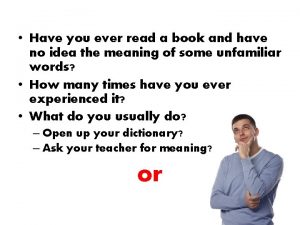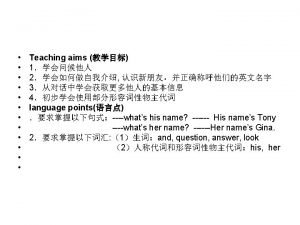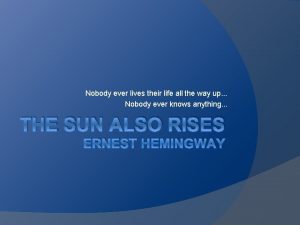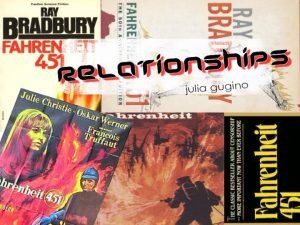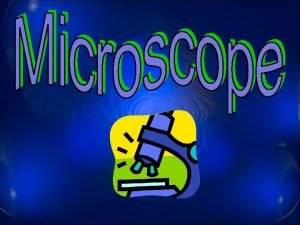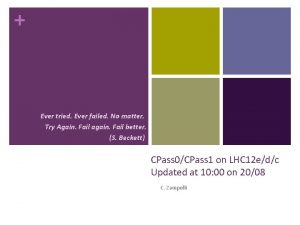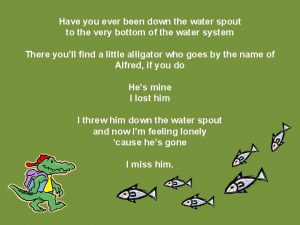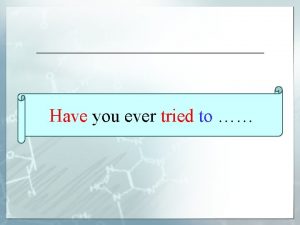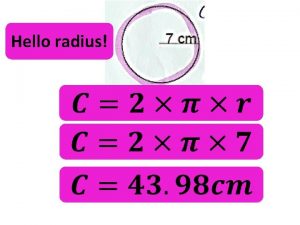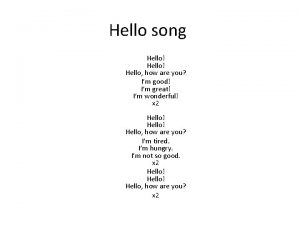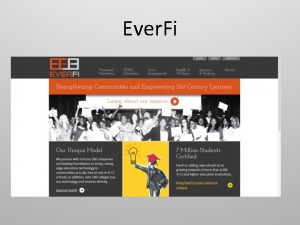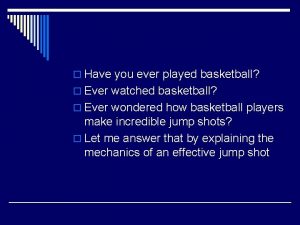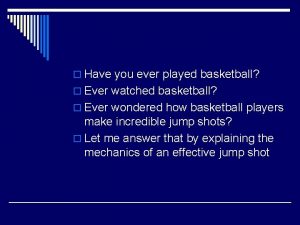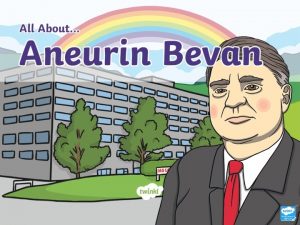Hello Have you ever read one of my
















- Slides: 16

Hello! Have you ever read one of my stories? PRESENT PERFECT vs PAST SIMPLE

FORM • Positive: HAVE / HAS + PAST PARTICIPLE • Negative: HAVE NOT / HAS NOT + PAST PARTICIPLE • Interrogative: HAVE / HAS + Subject + PAST PARTICIPLE? • We have seen that film / She has seen that film • I haven’t seen that film / She hasn’t seen that film • Have you seen that film? / Has he seen that film?

USES We use the PRESENT PERFECT for:

FINISHED EVENTS CONNECTED WITH THE PRESENT Look at the two Thompsons!! Two hours later. At hospital. What has happened to them? EXPLANATION The event or action is completed in the past BUT the exact time of the action is unknown or unimportant. We are interested in the RESULTS or EFFECTS of that event or action on us NOW.

PAST EVENTS WITH EXPRESSIONS OF “time up to now” How long have you known Snowy? Let me think… I’ve known Snowy for 7 years. EXPLANATION Here, the event or action began in the past BUT continues up to the present

FOR / SINCE (prepositions) FOR SINCE • When we mention the length of a period of time. • When we mention the starting point of time. • Ex: How long have you been a doctor? For 10 years. • Ex: How long have you known each other? Since 1997 or Since we were 27.

EXPERIENCES Have you ever been to China? EXPLANATION • We talk about things or experiences we have or haven’t done at some / any time in our lives up to now. • Here, we are thinking of a period of “time up to now” even if we do not mention it.

EVER / NEVER • It indicates at some / any time in your live up to now. • It is used in questions. • POSITION: Have / has + subject + EVER + past participle. NEVER • It is used in affirmative sentences. • POSITION: Have / has + NEVER + past participle.

We use the PRESENT PERFECT with the following TIME ADVERBS:

JUST Look!! The car has just broken down!! • Just indicates a very short time before now. • The event or action has just finished.

ALREADY / YET ALREADY • It indicates at some time before now. • The action or event may has happened sooner than expected. • It is used in affirmative sentences. • POSITION: have / has + ALREADY + past participle. YET • It indicates that the action or event expected hasn’t happened, not until now. • It is used in negative and interrogative sentences. • POSITION: at the end of the sentence.

Hello! Have you packed your things yet? Yes, yes… don’t worry Tintin. We have already packed our things up!!

We also use the PRESENT PERFECT with the following EXPRESSIONS:

TIME EXPRESSIONS that indicate an unfinished time period. Early this morning Still this morning Outside Where is Snowy? . . . I have heard enough bad news this morning!. . . Snowy!. . . Oh, he has gone out … • • • today this week this month this year this morning etc

Compare the previous example with this one: I didn’t hear any good news this morning!! This morning This evening • When the time period we are referring is finished, then we use the Past Simple.

CONTRAST BETWEEN THE PRESENT PERFECT AND THE PAST SIMPLE • We are interested in a fact that happened in the past. • We often use specific time expressions such as yesterday, two weeks ago, lat year, etc. • Ex: Mike didn’t go skiing because he broke his arm last week. PRESENT PERFECT • We are not interested in the time of the action but in the results of that action which is connected to the present. • Ex: Mike can’t go skiing because he has broken his arm.
 Hello goodmorning
Hello goodmorning The greetings song
The greetings song Have you ever read
Have you ever read Have you ever read oliver twist
Have you ever read oliver twist Whats your name bob
Whats your name bob Ever ancient ever new
Ever ancient ever new Clarified it
Clarified it Have you ever looked
Have you ever looked Ever tried ever failed no matter
Ever tried ever failed no matter Have you ever done something dangerous
Have you ever done something dangerous Have you ever wondered
Have you ever wondered Have you ever shoplifted
Have you ever shoplifted Folkways
Folkways Have you ever climbed a mountain?
Have you ever climbed a mountain? Chipper chopper joe
Chipper chopper joe Have you ever ridden a camel
Have you ever ridden a camel Have you ever climbed a mountain?
Have you ever climbed a mountain?


